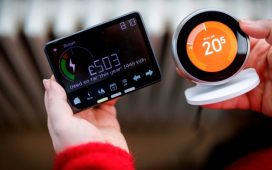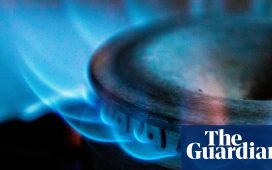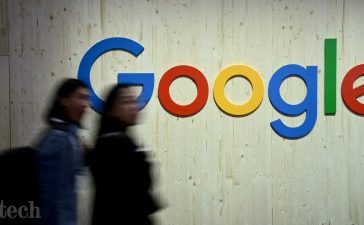Unlock the Editor’s Digest for free
Roula Khalaf, Editor of the FT, selects her favourite stories in this weekly newsletter.
Low uptake of heat pumps owing to their high costs, policy uncertainty and lack of consumer awareness is slowing efforts to decarbonise Britain’s homes, the government’s spending watchdog warned on Monday.
The National Audit Office said moving households away from fossil fuels to heat their properties was one of the “biggest challenges” the government faces as it tries to put the country on course for its legally binding target of net zero carbon dioxide emissions by 2050. It said domestic boilers accounted for about 18 per cent of the country’s CO₂ emissions in 2021.
But ministers had yet to make key decisions about how to hit the net zero targets and were relying on “optimistic assumptions about consumer demand” for electric heat pumps, which they see as the main technology to decarbonise the country’s 28mn homes.
The devices run on electricity, which is increasingly generated from the wind and the sun, and are more efficient than gas-fired boilers. But efforts to hit the government’s target of a ten-fold increase in annual installations to roughly 600,000 per year by 2028 are going slowly as “costs remain high and public awareness remains low”, the NAO said.
It said the high upfront costs of installing heat pumps were falling more slowly than anticipated, while take-up of the grant to offset the cost of replacing a boiler with a heat pump had fallen well short of its target.
The all-in cost of installing and buying a heat pump is about four times higher than a gas boiler and has fallen only 6 per cent in real terms since 2021, against a government target of a 25-50 per cent fall by 2025, according to the NAO.
“Government needs to be realistic about levels of consumer demand, raise public awareness of heat pumps and work with industry to make heat pumps more affordable,” said Meg Hillier, chair of the parliamentary public accounts committee.
The report said the government should report annually to parliament on the progress of heat pump sales and bring forward from 2026 a decision on what role, if any, it saw for using cleaner hydrogen gas as a fuel in home heating.
Last week, the government delayed plans to start fining manufacturers of gas boilers from April if they failed to hit mandated production targets for heat pumps. The move followed fierce lobbying by the industry, which had warned there was insufficient demand for heat pumps to hit the targets.
The NAO said the 2028 annual heat pump sales target of 600,000 had assumed the plan to fine gas boiler makers would come into force next month.
In September, Rishi Sunak, the prime minister, delayed a ban on new oil- or LPG-fired boilers for rural homes not connected to the gas grid from 2026 to 2035.
The move was part of a series of retreats by the government from measures aimed at tackling climate change. The dilution of green targets came as the ruling Conservatives began to worry about the impact of the mounting costs of green policies on voters ahead of a general election.
In a statement, the government highlighted its decision in September to increase the heat pump installation grant for households from £5,000 to £7,500, which had increased applications to the scheme to just under 2,000 a month on average. It added that it was “helping rather than forcing families to install heat pumps”.
It said it was investing “billions in home upgrades including insulating around 700,000 properties” and had launched a public information campaign about heat pumps, insulation and solar panels.
Climate Capital

Where climate change meets business, markets and politics. Explore the FT’s coverage here.
Are you curious about the FT’s environmental sustainability commitments? Find out more about our science-based targets here










